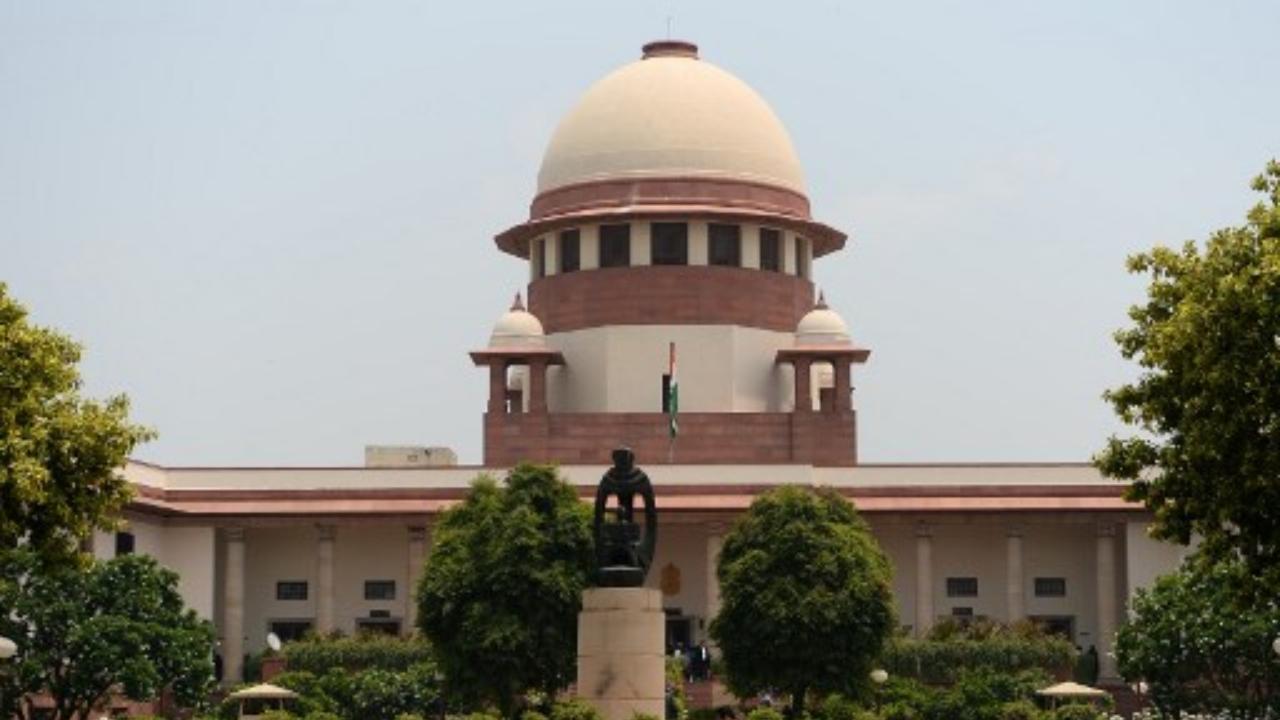The Supreme Court bench headed by Justice L Nageswara Rao asked the Punjab and Haryana High Court to decide the case within a month and also directed the state government not to take any coercive steps against employers for not implementing the law during the pendency of the case in the court

Supreme Court. File Pic
The Supreme Court set aside the Punjab and Haryana High Court order which had stayed Haryana's private job reservation law, providing for 75 per cent quota for the local candidates. The apex court has also asked the High Court to wrap up hearings on appeals filed by the stakeholders against the law within a month, while also asking the state government not to take any coercive actions against private companies for not implementing the new norms.
ADVERTISEMENT
The Supreme Court bench headed by Justice L Nageswara Rao asked the Punjab and Haryana High Court to decide the case within a month and also directed the state government not to take any coercive steps against employers for not implementing the law during the pendency of the case in the court.
The apex court said the order passed by the High court is set aside as sufficient reasons have not been provided for staying the legislation. It also ordered the parties in the case to not seek adjournments before the High Court.
Disposing of the Special Leave Petition (SLP) filed by the Haryana government against the High Court's order, the bench in its order stated, "We do not intend to deal with the merits of the matter as we propose to request the High Court to decide the writ petitions as expeditiously as possible, at any rate within four weeks. The parties are directed to seek no adjournments and present before the court next week for fixing the schedule of the hearing. In the meanwhile, the state of Haryana is directed not to take any coercive steps against the employers. "
Haryana government had filed an appeal in the top court challenging the interim order of the High Court staying the state law on providing 75 per cent reservation in private sector jobs for local candidates.
Solicitor General Tushar Mehta, representing the Haryana government, has contended that the High Court's order of staying the law was passed after hearing the state for only 90 seconds.
During the hearing, senior advocate Dushyant Dave, appearing for the employers association, told the apex court that legislature has no Constitutional power to enact a law providing reservation for domiciles.
The livelihood of employees is at stake, and also the very existence of employers will also be affected, Dave said adding that there is no empirical study and no data at all for the reservation in the private sector.
He further contended that the definition of employment is sweeping, even a law firm in Gurugram will be affected and cannot employ juniors from other states unless they employ 75 per cent from Haryana.
Senior advocate Shyam Divan, appearing for the industrial association, argued that the law will have a profound impact on businesses.
"This really affects the whole idea of India as an economic unit. This affects the concept of India as a federation," he added.
The High Court on February 3 had put on hold the Haryana government's law to reserve 75 per cent of jobs in the private sector for local candidates for employments in which salary is less than Rs 30,000 a month.
It had stayed the law as it failed to find merit in the state's arguments on treating the legislation prime facie valid in the interests of the unemployed youth in the state.
The order of the High Court came on a petition challenging the vires of the Haryana State Employment of Local Candidates Act 2020. The Act notified on November 6, 2021 applies to all companies, Societies, Trusts, Limited Liability Partnership Firms, Partnership Firms, and any person employing 10 or more persons, but excludes the Central government or the state government, or any organization owned by them.
The state government in its appeal before the top court has submitted that the Act makes a valid classification by grouping together local candidates who are unemployed and domiciled in Haryana, irrespective of their caste, creed, sex, place of origin or place of birth and their social status, so as to achieve the object of providing suitable employment in the private sector.
The appeal further stated that the Act makes a "geographical classification" on the basis of domicile and in furtherance of the fundamental right to life, livelihoods, and health conditions of persons domiciled in the state.
It claimed that there is no restraint against a state legislature from creating geographical classification to incentivise and grant concessions to citizens or industrial units.
This story has been sourced from a third party syndicated feed, agencies. Mid-day accepts no responsibility or liability for its dependability, trustworthiness, reliability and data of the text. Mid-day management/mid-day.com reserves the sole right to alter, delete or remove (without notice) the content in its absolute discretion for any reason whatsoever.
 Subscribe today by clicking the link and stay updated with the latest news!" Click here!
Subscribe today by clicking the link and stay updated with the latest news!" Click here!







